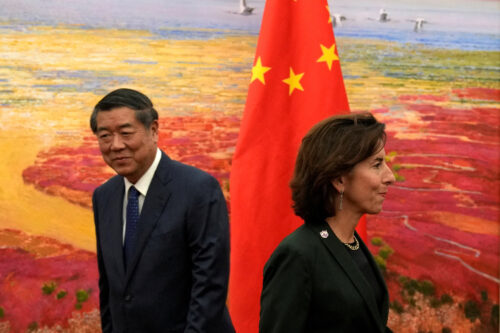Trade war rumblings: Sorghum and phones in play


Yesterday, the U.S. Department of Commerce banned American companies from selling components to ZTE, one of China’s two big telecom equipment manufacturers along with Huawei. The stated reason for the ban was what Reuters calls “ZTE’s violation of an agreement on punishing employees that was reached after it was caught illegally shipping U.S. goods to Iran.”
However, the ban is really just yesterday’s move in a years-long trans-Pacific struggle about cybersecurity and market access in tech. It’s especially bitter right now with Trump and his tariffs. This is what’s been in the news since yesterday:
- American sorghum imports into China will require a 178.6 percent deposit in anticipation of anti-dumping tariffs, starting tomorrow, the Ministry of Commerce announced in Beijing, reports Xinhua. Sorghum is used for animal feed and to brew baijiu 白酒 — strong Chinese liquor.
- “Most U.S. sorghum is grown for the Chinese market,” according to the Washington Post, which also notes: “The top five sorghum producing states are Kansas, Texas, Colorado, Oklahoma and South Dakota. All but Colorado went for Trump in the 2016 presidential election.”
- Unintended consequences of the ZTE ban: Reuters says the ban will also hit Qualcomm, which is “a major supplier of chips for ZTE’s phones.”
- “A devastating blow to its global ambitions” is how Bloomberg characterized the ZTE ban’s implications for the company, saying that “ZTE Corp. may have just gone from being a serious contender in the high-stakes world of next-generation networking to — quite possibly — a mobile industry washout.”
- “The crippling US sanctions against ZTE may be the trigger for the next leg down in the deepening US-China trade and tech wars,” said notable China watcher Bill Bishop (paywall).
But there are some counter-signals:
- “China loosens foreign auto rules, in potential peace offering to Trump,” says the New York Times (paywall).
- The olive branch: Foreigners will be allowed to wholly own car companies in China instead of the currently required joint ventures. But as Bloomberg points out, “carmakers with existing joint ventures will find them hard to unpick,” so China has essentially done Tesla, and other new foreign entrants, “a favor.”
- “China expanded its U.S. Treasury holdings in February despite escalating trade tension between Beijing and Washington,” according to the Financial Times (paywall).






